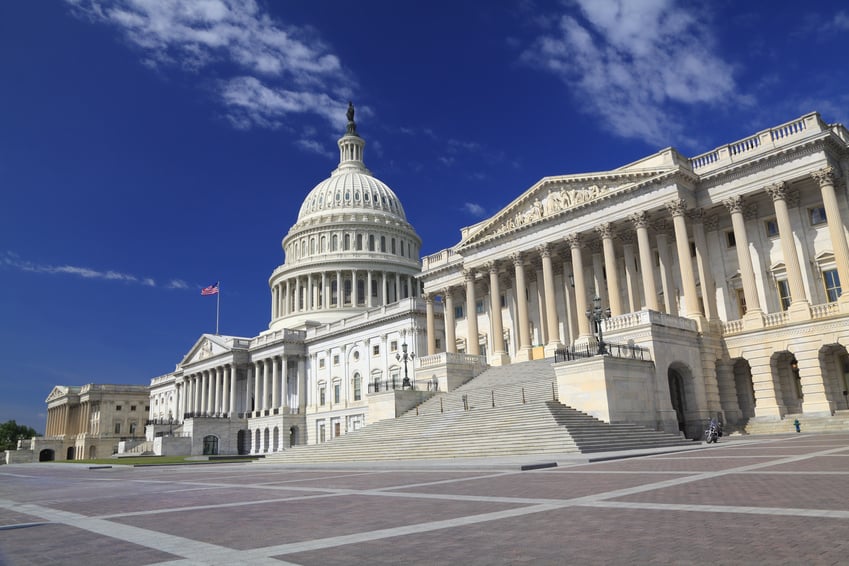In brief
Consumers and investors alike are increasingly shifting their focus towards both “green” products and investments in sustainable businesses and those with aspirational environmental and climate goals. Since environmental and sustainability claims have become ever more powerful marketing tools, they are also increasingly vulnerable to complaints of “greenwashing” ̶ the practice of overstating the environmental characteristics or benefits of a company or a product.
In depth
As businesses face increasing pressure to “go green” or become more sustainable, regulators in Canada and other jurisdictions have made unsubstantiated greenwashing claims a priority, as evidenced by an increase in greenwashing-related investigations and enforcement actions against businesses in a broad range of industries. This rise in regulatory scrutiny, combined with limited enforcement guidance, has arguably had a chilling effect on businesses, and in some cases resulted in businesses deliberately steering clear of communications about environmental initiatives (i.e., “greenhushing”) for fear of being labelled “greenwashers”. However, companies need not avoid making environmental claims entirely on the basis of legal risk. Instead, carefully designed advertisements and representations can result in powerful environmental claims and messages centred on truthfulness and attainability.
The frameworks governing environmental claims in advertising
In Canada, the Competition Act (“Act“) is the primary legislation used to regulate false or misleading advertising, including greenwashing. The Act contains criminal and civil reviewable provisions that prevent businesses from making false, deceptive or misleading claims in any medium to promote a service, product or business interest, including those involving “green” claims. It also contains provisions prohibiting representations of the performance, efficacy or length of life of a product that are not based on an “adequate and proper” tests conducted in advance. Historically, advertisers relied on the detailed enforcement guidelines (Environmental claims: A guide for industry and advertisers) published by the Competition Bureau of Canada (“Bureau“), originally developed together with the Canadian Standards Association, which provided extensive guidance on the use of individual environmental claims. However, concurrently with a major greenwashing enforcement action, those enforcement guidelines were formally archived in 2021. The Bureau has made clear that these guidelines no longer reflect its current enforcement position due to changes in standards and evolving environmental concerns. Since then, the Bureau has only made statements that give high-level guidance, such as, companies should ensure that the precise environmental benefits of a product are described. In addition, companies should avoid vague environmental claims such as “eco-friendly” or “safe for the environment” that have multiple interpretations, and could potentially lead to misunderstanding or deception.
In addition to the Act, environmental claims may be subject to regulation from an array of other legal instruments, including: provincial consumer protection laws and trademark laws that prohibit false or misleading claims to the public under specific circumstances; federal and provincial environmental laws, including environmental stewardship and producer responsibility laws, which govern environment-related disclosures and mandate certain reporting obligations for companies; and provincial securities laws, which prohibit false or misleading disclosures related to environmental, social and governance (ESG) activities.
In the area of self-regulation, Ad Standards’ Canadian Code of Advertising Standards (“Code“) does not specifically address “green” claims, but misleading environmental claims are often evaluated under Clause 1 of the Code, which prohibits inaccurate and/or deceptive claims, whether direct or implied (including through omission), through statements, representations or illustrations. More specifically, Ad Standards’ Interpretation Guideline #3 – Environmental Claims refers advertisers to the International Chamber of Commerce’s Framework for Responsible Environmental Marketing, which establishes a global minimum standard for claim-specific guidance and principles.
An Ad Standards Advisory published in 2007 further provides that whether any particular green advertising claim may raise a concern will depend on various factors. According to the Advisory, factors that are less likely to result in a claim being considered misleading include whether the environmental benefit is supported by well-recognized and accepted science-based evidence; the advertisement is balanced and reflects the product’s limitations; and there are no vague, absolute or unqualified claims (e.g., “environmentally friendly” or “not harmful to the environment”).
Multiple legislative reforms have also been proposed to address more specifically, “climate washing”, a form of greenwashing that applies to climate-related claims, such as “net-zero”, “carbon neutral” and claims related to greenhouse gas emissions reductions. Climate washing considerations arise not only in product advertisements, but also and more commonly in corporate advertising, media statements and securities disclosures and materials promoting ESG initiatives and programs. For example, the Canadian Securities Administrators (CSA), the umbrella organization of Canada’s provincial and territorial securities regulators, in response to global developments on climate-related securities disclosures, has proposed a new national instrument (51-107) to improve the completeness, consistency and comparability of climate-related disclosures by public issuers. The CSA’s proposals are the result of its concerns regarding limited available climate-related quantitative information, selective reporting, and “siloed” sustainability reporting that is not integrated within the organization’s periodic reporting structure.
There are also non-legal mechanisms that play a role in the environmental regulatory landscape, including private certifications, logos and seals, and industry standards for specific consumer products. However, the Government of Canada has not endorsed any specific environmental certification body, and businesses therefore cannot always rely on such certifications to prove that their environmental claims have adequate substantiation. In January 2023, the Bureau launched a greenwashing investigation (that remains ongoing) against one of North America’s largest sustainable forestry certification schemes, showing that private sector certifications do not always confer immunity from regulatory scrutiny.
True, False or Deceptive?
In recent years, the Bureau has increased its level of enforcement of green marketing claims. While largely a reflection of the Bureau’s own priorities, the trend toward increased enforcement is also in part the result of private groups proactively making complaints and in some cases commencing actions under section 9 of the Act. Section 9 allows any six persons to make an application to the Commissioner of Competition to commence a formal inquiry into conduct that is alleged to contravene the false or misleading advertising provisions of the Act.
For example, in 2019 the Ecojustice made an application that triggered a Bureau inquiry into the environmental claims made by a coffee machine manufacturer. The Bureau’s inquiry resulted in findings that the manufacturer’s claims regarding the recyclability of its single-use coffee pods were false or misleading. The Bureau found that the pods were not widely accepted by municipal recycling programs outside of British Columbia and Quebec, and as such claims concerning how to prepare pods for recycling were false or incomplete for certain municipalities. The manufacturer entered into a consent agreement with the Bureau, which included agreeing to pay a CAD $3 million administrative monetary penalty, donate CAD $800,000 to a Canadian environmental charity, publish corrective notices and enhance its corporate compliance program to promote compliance with laws for a 5 year period.
Ecojustice also made an application that led to the Bureau opening an inquiry into a major Canadian bank based on allegations that the bank had made misleading climate washing statements in its corporate marketing materials. The application alleged that the bank made representations that it supports the reduction of greenhouse gas emissions while allegedly providing financing for fossil fuel development and expansion. While the inquiry remains ongoing, it highlights the importance of being alert to the potential for climate washing even in ESG-related materials.
Most recently, in May 2023, the Bureau announced that, as a result of a six resident application made by Greenpeace Canada, it is investigating whether a group of oil sands producers working to advance climate-related initiatives may have misled the public in an advertising campaign. The application alleges that the net-zero claim the group is misleading because it does not provide a full picture of the emissions produced by the companies involved. This investigation is still in its early stages, and the outcome remains to be seen.
The increase in regulatory scrutiny and enforcement action, and the relative lack of specific, recent guidance from regulators, has in some cases led to “greenhushing”, that is, businesses choosing not to disclose any information about their environmental, sustainability and/or climate-related practices out of fear of being subject to a greenwashing complaint or regulatory investigation. The rise of “greenhushing” should encourage regulators to provide clearer standards and guidance to businesses that want to make a positive environmental impact but are afraid to advertise their efforts. If businesses cannot publicize their activities without undue legal risk, and environmentally-motivated companies either become or appear to be outliers, more businesses may choose to forgo environmental and sustainability initiatives, potentially impacting environmental progress.
Take-Aways
As they respond to increased environmental and sustainability pressures, businesses should carefully balance the desire to appear “green”, while being aware of greenwashing risks that can come from falsely advertising their practices, commitments and progress. These risks are only heightened given that greenwashing now extends beyond traditional product marketing, to the general promotion of business interests through forward-looking environmental goals, ESG policies and initiatives, financial and securities disclosures, and related corporate materials. When making “green” claims of any kind, businesses should ensure that they:
- Consider the general impression made by the claim in relation not only to the individual product, but in many cases their wider business operations as well.
- Have adequate scientific evidence to support their claims of a standard sufficient to be accepted by environmental scientists and professional organizations at the time of use.
- Avoid broad or vague claims that cannot be adequately supported or qualified.
- Consider the environmental limitations of a product, service, initiative or claim and ensure any limitations are disclosed and prominently qualified in the advertisement.
While making environmental claims involves some risk, it is crucial to recognize that the risks are usually not unreasonable or insurmountable. As greenwashing is likely to remain an enforcement priority, and until guidance becomes clearer, advertisers do need to be prudent when making environmental claims. Nevertheless, with careful consideration and design, and appropriate review and risk assessment, companies can typically proceed to make such claims with confidence.






